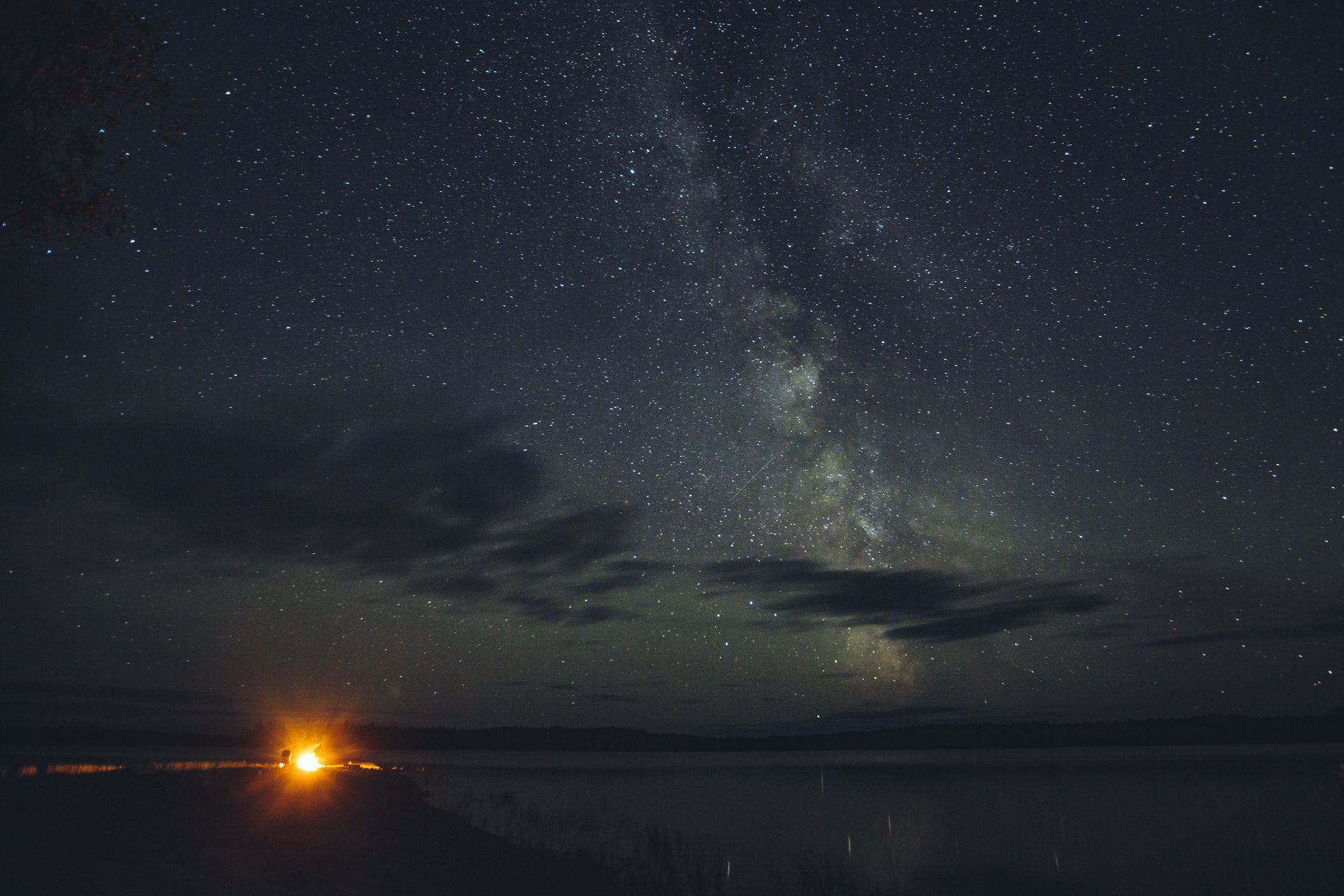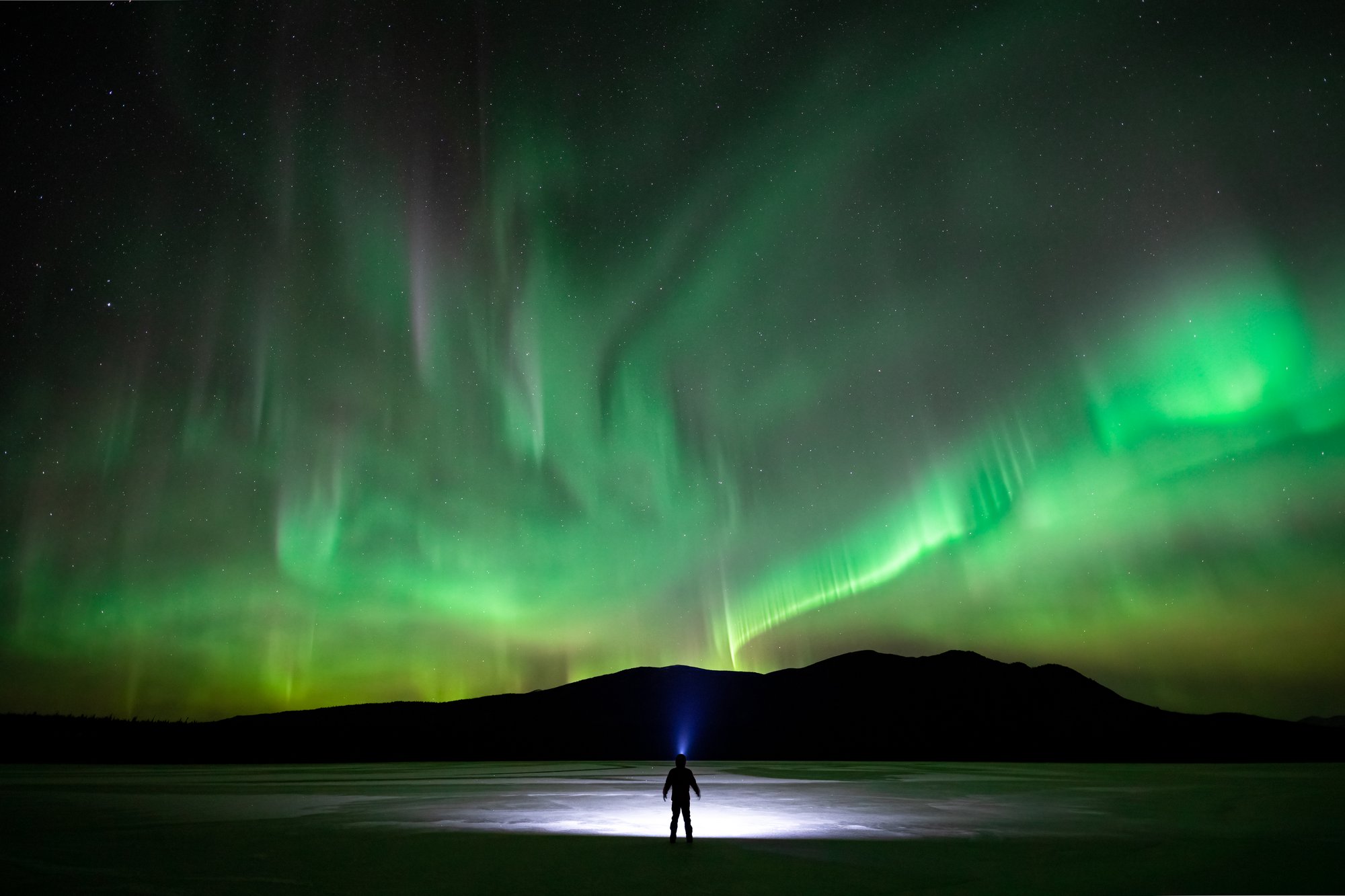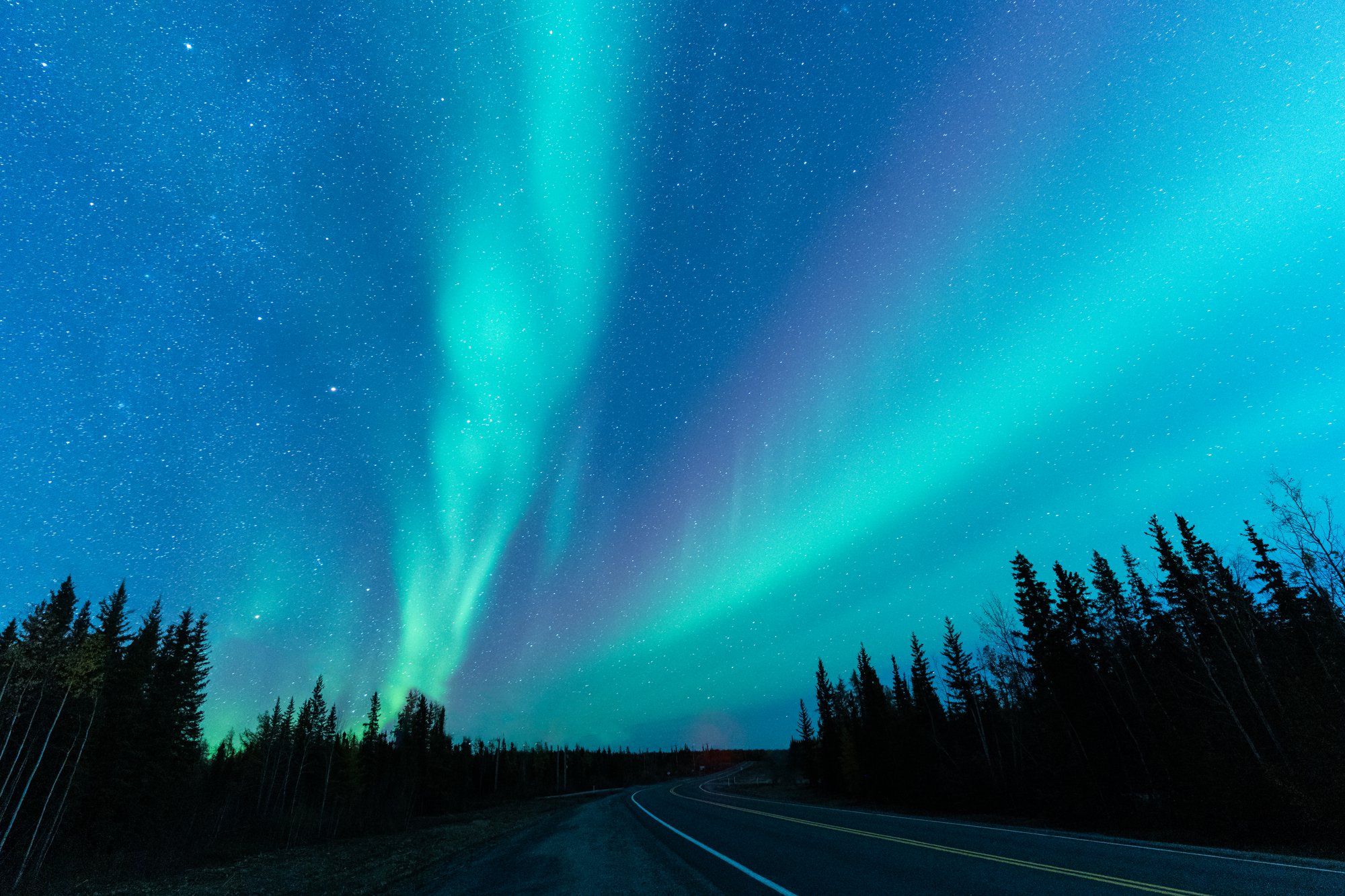Unexpected Places to Stargaze Near Canadian Cities
City life rarely leaves room for darkness and opportunity for stargazing. Streetlights hum, towers glow, and the sky fades to grey. Yet just beyond the ring roads, the night still breathes. Across Canada, within an hour of its busiest downtowns, travellers can find quiet places where the stars reappear. These aren’t wilderness expeditions or exclusively dark sky reserves— they’re small escapes that remind us how close wonder still is.
British Columbia – Stars Over Howe Sound
Porteau Cove Provincial Park (≈ 45 min from Vancouver)
The Sea-to-Sky drive climbs quickly out of the glow. At Porteau Cove, mountains frame a wide horizon where stars and ferry lights share the same dark water. Pull in after dinner and stay long enough for your eyes to adjust — the Milky Way often comes back first.
Alberta – Night on the Elbow
Elbow Falls, Kananaskis (≈ 50 min from Calgary)
Beyond Bragg Creek, the forest thickens and the city noise disappears. At the falls, only the river moves. On clear nights, constellations rise above the foothills — an easy hour from Calgary, yet it feels like another province.
Saskatchewan – Prairie Quiet
Beaver Creek Conservation Area (≈ 20 min from Saskatoon)
Where the South Saskatchewan River bends through grassland, night settles quickly. The open meadows around Beaver Creek reveal a wide, dark dome — the prairies as most travellers never see them.
Manitoba – Pines and Open Sky
Birds Hill Provincial Park (≈ 30 min from Winnipeg)
Beloved for festivals and cycling trails, this park also offers a surprisingly deep night perfect for stargazing. Step beyond the campsites and look up — between the pines, the stars still crowd together.
Ontario – Escarpment at Dusk
Rattlesnake Point Conservation Area (≈ 55 min from Toronto)
Past Milton, Toronto’s city glow fades fast. The escarpment’s cliffs overlook quiet farmland — dark enough for Orion and the Pleiades to shine clearly. Bring a headlamp, but keep it red-light low.
Québec – River Valley Reflections
Parc national de la Jacques-Cartier (≈ 30 min from Québec City)
Only half an hour from Old Québec’s lights, the valley narrows and the stars return. The river acts like a mirror for the constellations, and silence settles in with the mist. Close, calm, and genuinely dark.
New Brunswick – Stars Above the Bay
Fundy Trail Parkway Lookouts (≈ 45 min from Saint John)
Day visitors chase the tides; night travellers find the sky. The cliffs along the parkway turn shadow-blue under starlight, and the water below glows faintly from plankton and moonlight.
Nova Scotia – The Atlantic Unlit
Crystal Crescent Beach Provincial Park (≈ 35 min from Halifax)
A winding coastal drive leads to open sand and silence. Once the sun sets, the dunes and surf absorb the last of the city’s glow. On still nights, the stars stretch straight to the horizon.
Prince Edward Island – Dunes After Dark
Brackley Beach (≈ 25 min from Charlottetown)
Easy to reach, hard to forget. When crowds leave, the beach becomes a quiet observatory perfect for stargazing. Wet sand doubles the constellations — simple, beautiful, and close enough for a late-night walk.
Newfoundland & Labrador – Lighthouse Shadows
Cape Spear National Historic Site (≈ 20 min from St. John’s)
At the continent’s edge, darkness feels bigger. The lighthouse stands against an Atlantic sky that’s truly black. You’ll hear waves before you see them — a reminder of how near and far the wild can be.
Yukon – Northern Light Within Reach
Chadburn Lake Recreation Site (≈ 15 min from Whitehorse)
Locals come here when the aurora forecast looks good. Even in summer, dusk lingers long enough for bright stars over still water. Pack a thermos; it’s the easiest night sky for stargazing in the North.
Northwest Territories – Quiet Water, Bright Sky
Prosperous Lake Territorial Park (≈ 30 min from Yellowknife)
Close to town but away from its glow, Prosperous Lake offers reflections of both stars and northern lights. Pull off the main road, turn off the car lights, and let your eyes adjust to the true dark.
Nunavut – The Edge of Night
Apex Beach (≈ 10 min from Iqaluit)
When autumn brings real darkness back to the Arctic, locals head to Apex Road. Stars rise over Frobisher Bay and, if you’re lucky, the aurora weaves through them. It’s the shortest possible journey to infinity.
Plan Your Own Night Escape
- Time it right: Check the lunar calendar and cloud forecast before heading out. A clear, moonless night reveals more than a thousand visible stars — even near cities.
- Use the map: Apps like DarkSiteFinder or Light Pollution Map help pinpoint new spots along your route.
- Pair it with travel: Add a stargazing stop to your itinerary — a simple way to turn a city trip into something memorable.
- Travel lightly: Bring layers, a red-light headlamp, and a thermos. Let your eyes adapt before judging the darkness.
- Leave it better: Keep noise and lights low, and respect local wildlife and communities.
Modern travel tends to chase daylight — museums, cafés, viewpoints. But darkness holds a different kind of insight. It slows the pace, restores attention, and reminds us that quiet places often sit right beside busy ones.






